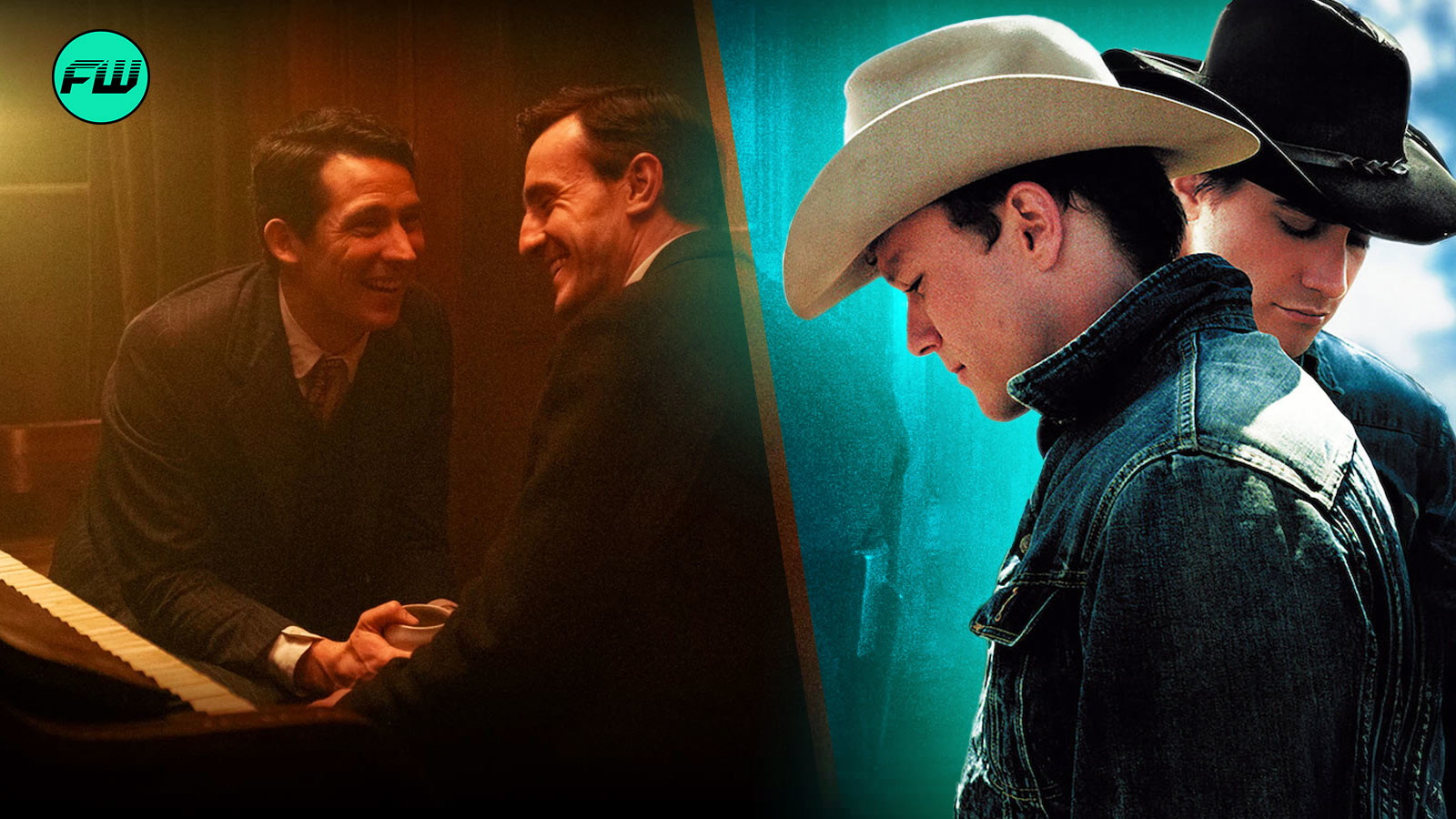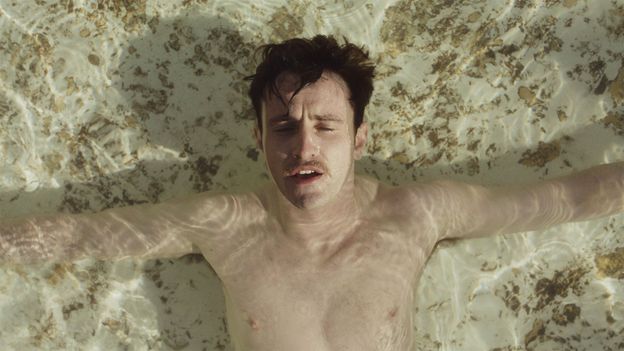Ang Lee Interview On 'Brokeback Mountain's 20th Anniversary
Two of Ang Lee’s most disruptive films celebrate anniversaries this year; they may be five years apart, but the connective tissue between them is undeniable. Crouching Tiger, Hidden Dragon (2000) was such an intense high-wire act, the grueling shoot in China left Lee barely able to stand and fully intending to give it all up. It was Lee’s father who made his son promise to try one more time, because retirement, he thought, would set a bad example for the filmmaker’s son. Lee’s father died in 2004, weeks after making his son promise to give it one more go, and Lee kept that promise with 2005’s Brokeback Mountain, an experience that made the filmmaker fall back in love with storytelling, fueling everything he has done since including Life of Pi, which brought him his second Oscar for directing.
When I meet Lee in his Manhattan offices, he is struggling to hit a budget number and a green light from Sony Pictures on a Bruce Lee movie that will star the director’s son, Mason. He hopes to revolutionize fight choreography one more time. He certainly accomplished that with Crouching Tiger, Hidden Dragon. The film had non-martial artist actors Chow Yun-fat, Michelle Yeoh and Ziyi Zhang soaring in Cirque du Soleil-style aerial battles woven into a 19th century China-based drama about duty, honor, vengeance, repressed desires and lost love, mixed seamlessly into the ass-kicking wuxia genre. It was a marked contrast to Brokeback Mountain, another forbidden love story powered by the performances of Heath Ledger, Jake Gyllenhaal, Michelle Williams and Anne Hathaway.
: I hope I can revolutionize something in action shooting. Crouching Tiger was my first taste of martial arts filming, and I learned the hard way that it’s not about martial arts, it’s about choreography. It’s a two-person dance, in the form of fighting. They collaborate with each other instead of trying to kill each other. [The Bruce Lee project] is different. It’s not about choreography, although he did that extremely well. It’s very different from Crouching Tiger, more like Sense and Sensibility in an ass-kicking form. Bruce Lee was the first and probably only person, even now, that put expression and thought into his fighting instead of just dazzling you. Nobody had done that with such dramatic effect, such a visceral impact.

: I didn’t know how to do it. I believe I’m a pretty quick learner in any kind of filmmaking, like the previous movie, Ride with the Devil. Horses, guns. Also, it was the first time I’d tried using an anamorphic lens, which is very different than your normal lens, and I picked it up in two weeks. The first action sequence, I didn’t know what I was doing, I was flabbergasted, but the next one I did quite well, and in two weeks I’d figured out gunfights, action, how to frame horses. On the other hand, it took me two and a half months on Crouching Tiger to even know what I should be looking at for action in a martial arts film, even though the choreography team were among the most brilliant filmmakers I know.
: Michelle can act. I know she can act. She may not act the way I like, because she picked it up from Hong Kong action crews. Nobody talks about acting in action movies, because you have to count the beats, otherwise you get hit. That’s all you think about if you don’t want to get hit or poked in the eye. I wanted to build in performances.
[Wuxia] is a great form of art if you know how to use it. I would sacrifice a little bit on swiftness of movement to go for the acting. It was a great challenge for the greatest choreographer, Mr. Yuen Woo-ping, I’m glad he has such a heart for drama, for art, that he was willing to compromise the visual effect — of which he’s a master — for the dramatic effect. So, that’s something different from that movie, I would say. The formal martial art [film] is full of regulations. They’re supposed to do this or that, it’s preachy and pulpy.
I wanted to make great cinema out of that. That was my yearning, to grab the Chinese tradition. My fantasy China does not exist in Taiwan or Hong Kong or China anymore. It’s a lost thing. But I was brought up by that culture. With that movie, I’m tracing my cultural roots. You certainly don’t see that in martial art movies. Little hints, but not really.
By nature, I’m like Michelle’s character. I was never rebellious. As a child, I was very obedient, extremely docile and shy. I behaved well, but my mind was drifting. I didn’t know where my focus was, until I start making movies. But filmmakers didn’t get respect from my father’s generation. There were no role models. My father loved me. He loved drama, and he loved movies like everybody else. It’s just that his son having a filmmaker’s life was hard for him. He was a very respected person, a high-school principal. But he still supported me. To go to film school, that cost a lot of money back then.

: Well, finally he caved in. At first, he thought, “OK, if you have to make a movie, go make a movie. But once you get that out of your system, you can do something more serious.” I remember he said that to me after Sense and Sensibility. It was being treated like a national treasure, winning awards — though not me, because nobody knew who I was yet — and he said, “I think, at this rate, you might get an Oscar when you’re 50. Then you can think about something serious.” But I’m pretty sure he was proud of me even then.
: It took a little bit over five months to shoot, and they were long days because we traveled to many places and those martial arts scenes take a long time. Each fight scene would take at least two weeks, from 16 to 20 hours a day. For the first two months I shot over 12 hours a day. If a non-martial arts director did that, they’d leave the martial arts team to do their thing. But I wanted to do everything myself, because I wanted the drama in there. So, I’d be shooting drama, then move and set up the wire work, which took hours.
I’d go to the other set, which was an hour away, and at night I’d do night-fighting until five o’clock in the morning. Traveling back, I’d doze off in the car, take a shower, sleep maybe an hour and go to the next 12 hours. I’d shoot six days a week, and my Sunday involved doing only 12 hours of shooting and watching dailies. Plus, there was another nearly five months in prep. We lived in a hotel. My room was $13 a day. There were, like, eight months where I didn’t have more than three hours of rest.
It’s the hardest movie I ever made. I cannot do that anymore. But it’s very memorable. We had a blast. We were very inventive [with the wire work]. After our movie, I don’t think anybody is allowed to do that anymore. It’s all digital. It doesn’t risk somebody’s life, let alone the lives of the biggest stars in Asia. That was really dangerous.

: I thought I’d retire after Crouching Tiger because I was literally spent. At the end when I was mixing sound, I couldn’t even sit down. I was lying down on the couch. It was that bad. I said, “I’ve had enough. My dad was right.” And then three months later, what am I doing? I’m doing Hulk. That was another exhausting five-month shoot, but I found a new playground. For the first time in my career, I learned about visual effects. After that, I was really tired, and I wanted to retire.
: My father, for the first time in his life said, “Go ahead and make another movie. You’re only 49. It’s a bad example for your boy.” And then two weeks later, he passed away. I’d taken Hulk over Brokeback Mountain. I thought it was the little movie that I’d missed. I assumed it had gotten made. So, I asked [producer] James Schamus, “Remember Brokeback Mountain? How did it turn out?” James went out right away and bought the rights.
: I wanted to retire. I think Brokeback Mountain brought me back, nursing me back to love life, to love filmmaking. And I’m still standing, still making movies, thanks to that movie. That was the one movie where I felt, “There’s a movie god who loves me. He wants me to keep going.” And the movie was so perfect. What have I done to deserve that movie? Everything about it was good. At first, I didn’t even want to go back to work. I was so emotionally drained, because my father had passed away, and I was exhausted after the other two movies. Physically, I was drained. I got Achilles tendonitis. My body just gave up.
I don’t know what it is about that movie. It’s a sad movie, but it’s about love. It’s so nurturing. Everybody’s in love. And it was great. Every actor turned out to be great. I didn’t do much, I just did the coverage. I didn’t have a cinematic ambition. I just basically made the day and secured the performances. And then, in the first cut, I realized I’d got something. People are so affected by it. You can never plan how people feel about the movie. It never happens as you’d expect. But people swoon over the movie. I thought it was a small arthouse movie. I thought no American company would want it. I thought nobody would see it, so I could do whatever I wanted. And coming from Hulk, there was practically no budget. So, I learned that the effectiveness of a movie is literally something you cannot predict. It doesn’t correspond with how much effort you put in it. Making Crouching Tiger was a thousand times harder than making Brokeback Mountain. And Brokeback Mountain was a great success that just seemed to happen on its own.

LEE: I knew it was a good movie because, from the first cut, which I showed to friends and family, I could see that it had an effect on people. Then, at Venice, people were gushing. I did not expect to win there, so I flew to Toronto for the festival. I thought, “There’s no way we’re going to win.” When I landed in Toronto, my publicist was at the airport. I walked off the plane, and he said, “Turn around, they want you to go back.” I’d won the Golden Lion. I’m always uptight when I get awards, never happy. I’m a shy person. Except that one time. Everybody was smiling at me. The movie had so much love. I was very happy. And then Toronto, of course, complained because I wasn’t on the red carpet. But it was all good; I knew I had a winner of a movie. I still didn’t imagine it would go to the shopping malls. That was really a surprise.
When a film takes off, you see it go up in the box office, and suddenly everybody is going to see it. I remember the L.A. Times ran a headline saying, “Ang Lee Breaks the Last American Frontier.” I was like, “Kill me!” I was very nervous. I’m a shy person. A foreigner. I got nervous when they started describing me as a hero. And then it stopped, at $80 million. Maybe everybody who wanted to watch it had watched it. But it stopped right there. In the heat of the Oscar campaign. You’d think it would keep going, but everything just stopped.
DEADLINE: Why?
LEE: I don’t know. I guess there was only so much tolerance in America at the time.
DEADLINE: After winning most major awards, Brokeback Mountain lost to Crash at the Oscars in a big upset.
LEE: When I got my award [for Best Director] right before [the Best Picture announcement], the stage manager said, “Just stay here.” We were by the curtain. Then he was like, “Uh. Oh my god…” So, everybody expected us to win. He looked genuinely surprised.

DEADLINE: You must have wondered why. Was it the limits of tolerance, aversion to a gay love affair in the Oscar voting body?
LEE: Your guess is as good as mine. There are times when I feel like there’s an unlimited willingness to watch the movie. There’s so much love for it. Generally, you feel like it’s a breakthrough, that it broke all barriers. People seem to melt down. And you cannot even define it as gay cinema. It’s not gay cinema, right? It’s a love story.
DEADLINE: I guess they weren’t ready to give it the Best Picture at that time…
LEE: I’m nothing but grateful. I have no bitterness. It never occurred to me. Maybe just for one second, when Jack Nicholson opened the envelope, and then it disappeared. Honest to God, I never held any grudge because Crouching Tiger didn’t get me the director award. I was winning straight up, until the Oscars. But it didn’t really bother me. Even that little grudge I had was because I was the leader of the pack. I represented the movie. So many people worked on it, I wanted it to win. So, it takes a few seconds for that to pass. How many people get to experience that? How many filmmakers? Not many.

DEADLINE: When did you realize you had something with Crouching Tiger?
LEE: It was late. After the movie was done, we still had four months of post-production. Most of the time it was doing looping, recording Michelle and Chow Yun-fat’s Mandarin dialogue. And then we had the visual effects. The post team was only me, my editor, and my assistant editor. Only three of us. None of us had visual effects experience. It was all over the place. Back then, there were no preview screenings, just friends and family, and we couldn’t even show it with subtitles. So, unless they were Chinese, they wouldn’t really know what was going on. So, no, I didn’t know [we had something] until we went to Cannes, where people cheered. They applauded; they screamed.
DEADLINE: These are two risky movies, and we haven’t focused on the others, like Life of Pi, which brought your second Best Director Oscar, or Billy Lynn’s Long Halftime Walk, which didn’t catch on with audiences but broke ground with high-resolution formats. How much harder would it be for you to make either movie now?
LEE: It was hard before, but it was possible. Right now, it’s impossible. You are not allowed to take risks and find something new, but if you don’t change, you’re dead. I don’t get it. I’m going to keep fighting. And if it takes longer, then it takes longer. I think the world was more open-minded then. Today, it’s hard. The whole world has turned so hostile. I wish it was different. I miss those days. I miss the good old days.









